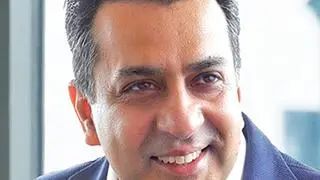Microsoft President Brad Smith has expressed optimism about the potential of facial recognition technology as he cited the example of India, where it helped in identifying almost 3,000 missing children in four days.
Smith wants to see tech companies proactively adopting policies that prohibit abuse of the technology and he hopes to hold Microsoft up as an example.
“As with all new technology, the uses of facial recognition are multiplying in both predictable and surprising ways. But it’s increasingly clear that a great many of these uses have created many new and positive benefits for people around the world, he wrote.
In countries like India, Artificial Intelligence (AI) has been used for positive benefits, Smith wrote.
“It’s striking to review the breadth of this innovation. Police in New Delhi recently trialed facial recognition technology and identified almost 3,000 missing children in four days,” Smith wrote in his blog which made no reference to the Chinese use of AI.
Microsoft is one of several companies playing a leading role in developing facial recognition technology, he said.
“We’re working with customers around the world, while acting aggressively on industry-leading efforts to improve the capability of this technology to recognise faces with a range of ages and skin tones,” he added.
Smith argued that one needs to be clear-eyed about the risks and potential for abuse.
He was concerned about a future in which facial recognition spreads without strong regulations.
Issues to be addressed
There are three problems that governments need to address, he said.
“Especially in its current state of development, certain uses of facial recognition technology increase the risk of decisions and, more generally, outcomes that are biased and, in some cases, in violation of laws prohibiting discrimination, he wrote.
He said the widespread use of this technology can lead to new intrusions into the people’s privacy. The use of facial recognition technology by a government for mass surveillance can encroach on democratic freedoms. “We believe all three of these problems should be addressed through legislation,” Smith said.
“When combined with ubiquitous cameras and massive computing power and storage in the cloud, a government could use facial recognition technology to enable continuous surveillance of specific individuals,” he added.
“This use of facial recognition technology could unleash mass surveillance on an unprecedented scale,” he warned.








Comments
Comments have to be in English, and in full sentences. They cannot be abusive or personal. Please abide by our community guidelines for posting your comments.
We have migrated to a new commenting platform. If you are already a registered user of TheHindu Businessline and logged in, you may continue to engage with our articles. If you do not have an account please register and login to post comments. Users can access their older comments by logging into their accounts on Vuukle.